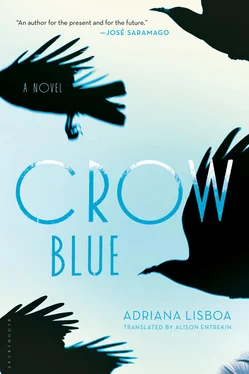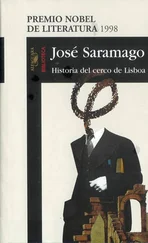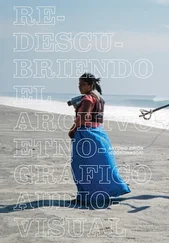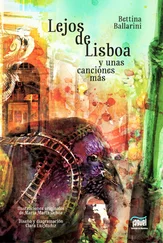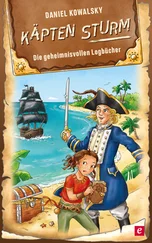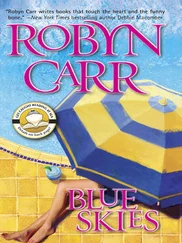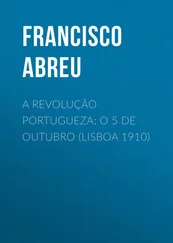One day I discovered a poem called “The Fish.” It was pretty difficult. It was in one of those (pretty difficult) anthologies of American poetry that the librarian gave me to read, full of literary honesty and belief in the future. And which I read thinking that it was all going to be transferred to my brain, lodge there and make me a different person (better, if possible: I worked hard at it and had a sponsor), just as the TV had taught me other basic survival techniques.
A few years later, having reread the poem called “The Fish” many more times, the axis of my feelings shifting a little more with each reading, I decided it was my favorite. My Poem. Of all of the ones I’d sweated over in the pages of the anthologies in Denver Public Library.
I discovered that the author, Marianne, was the daughter of an engineer-inventor by the fine name of John Milton Moore (I’d like to be called John Milton Moore if I were a man. Evangelina Moore doesn’t work, but Marianne Moore does. That is the name of the author of my favorite poem and it is a lovely name). Her father was committed to an institution for the mentally ill before she was born. I didn’t find anything about her mother; she was just John’s wife and was named, quite appropriately, Mary. Marianne liked boxing and baseball.
When I read the “The Fish,” I was transported to a world of colors, of primordial movements. It contained crabs like green lilies and submarine toadstools.
And a turquoise sea of bodies. And crow-blue shells.
And a “sun split like spun” that was nice to repeat over and over, bringing with it an image of submerged shards of sunlight, shafts of sunlight. SUN SPLIT LIKE SPUN SUN SPLIT LIKE SPUN SUN SPLIT LIKE SPUN. Sun split like spun glass.
It had nothing to do with the studies by scientists at the University of Edinburgh revealing that fish can feel pain [citation required]. Not least because it was written well before them.
It also had nothing to do with the operations conducted by the Brazilian Armed Forces on the banks of the Araguaia River.
Those were other fish. The woman who wrote “The Fish” was dying when the Armed Forces trailed their dragnets for subversives through the Brazilian Amazon. And she had nothing to do with it. Just as no fish had anything to do with it. The story that was unraveling on the banks of the Araguaia was a human story. The fish only lent it their name.
Involuntarily, I might add — like confiscated savings accounts.
I liked the expression “smooth sailing” the first time I came across it. I tried to find the best translation in Portuguese but nothing was quite right. It meant easy progress. But the expression itself evoked boats, the sea and calm surfaces and took me back to the time when that made immediate sense.
“Smooth” was the satiny quality of the water, “sailing” was the verb for the sail that puffed out with the wind and crossed entire oceans.
The moment the English teacher at school congratulated me on my efforts and summed it all up in that “smooth sailing,” I clearly saw myself in a sailboat making the tiniest tear in a perfectly silken sea, a progressive boat, a boat as pure and optimistic as the shoals of fish swimming beneath it.
I left school along liquid corridors, and the concrete of the sidewalk was liquid.
So I sailed. In a single expression the English teacher had defined my first few weeks in an entirely landlocked state, without any contact with any beach or any ocean.
In terms of water, in Colorado, I had seen the reservoirs where people sailed around in circles on Sundays. Cascading rivers in the folds of the mountains, on which people practiced turbulent sports — navigating downstream in yellow boats that looked like giant kitchen sponges or in pointy kayaks. I never suspected that all that water would grow thin and lock itself away in ice in the months to come, storing its liquidity in the slow metabolism of hibernation.
But I sailed on calm seas, that is, I made easy progress, that is, I was being successful in my daily attempts to not trip up.
Boats that sail on calm seas know no gravel, no loose stones in their path, they know no feet. Their mobility is made of waves and wind. With the right waves and the right wind the sailboat slips along free of metaphysics. Like a first-grade equation.
Daniel, my father’s name, was a valid name in several languages, I discovered to my delight. Daniel was Daniel in English, Portuguese and Spanish, the three languages I had contact with every day, there in Lakewood.
The plump man in the blue shirt and tie in the Jehovah’s Witnesses pamphlet would no doubt be able to explain the biblical origins of the name. All I knew was that it had belonged to someone who at some stage had had something to do with lions, according to legend. I didn’t even know if he had fought them and won, with some intrinsically spiritual moral to be learned, or lost, with some intrinsically spiritual moral to be learned.
I suspected that Daniel didn’t suspect that he had a thirteen-year-old daughter named Vanja, who was a citizen of two countries and lived in harmonious linguistic chaos, a daughter who spoke English at school, Portuguese at home and Spanish with the neighbors.
And I sensed that I needed to maintain that smooth sailing towards Daniel. Life needed to become an orderly series of tasks. More or less like a sailor’s day-to-day life must be. An orderly physical world full of calculations and angles that is needed for a boat to sail.
The same orderly physical world where hungry lions kill Daniel, where disinterested lions spare Daniel — it’s hard to say. There are the between-the-lines in all stories. Some gods like bloody martyrs (in the style of Tim Treadwell and his bears in Alaska), others don’t really care.
But at any rate I suspected that Daniel didn’t suspect that I existed.
After a few phone calls, Fernando had finally located some people. Among them, that old friend of my mother’s who lived in Santa Fé. But couldn’t Daniel have been located with a telephone book too? He could have, if there weren’t lots of Daniels with the same surname all over New Mexico and if Daniel still lived in New Mexico and if he happened to be listed.
But maybe he had crossed the border and was now in Arizona or Texas or even Colorado, or in Mexico even, on the other side of an even more borderly border, or in British Columbia or Argentina (why not?), or virtually anywhere else in the world. Or maybe that specific Daniel no longer existed, and there were just his namesakes scattered across the globe, a one-man diaspora.
The old friend of my mother’s who lived in Santa Fé taught piano and was called June. It had been over ten years since she’d last seen Daniel, as she explained to Fernando. She told him that he had moved to San Antonio, in Texas, and then they had lost touch. Emails, that kind of thing? She had tried, said Fernando. She had written to a few people, but hadn’t heard back yet. We’d have to wait a little.
After a few moments of silence:
Why didn’t you ever ask your mother where your father was?
Because I didn’t need to know. Because I don’t think she knew. Because I don’t think she would have wanted to tell me. I don’t know. Why did you and she stop talking?
Because we didn’t have any reason to keep talking to each other.
Didn’t you have anything to talk about? Didn’t you care about each other anymore?
We didn’t have anything to talk about. We didn’t care about each other anymore. That must have been it.
He was chopping kale. I picked up a piece of kale that had fallen on the ground and put it back on the chopping board. And I dared to ask: Why did you have to leave Brazil?
Читать дальше
